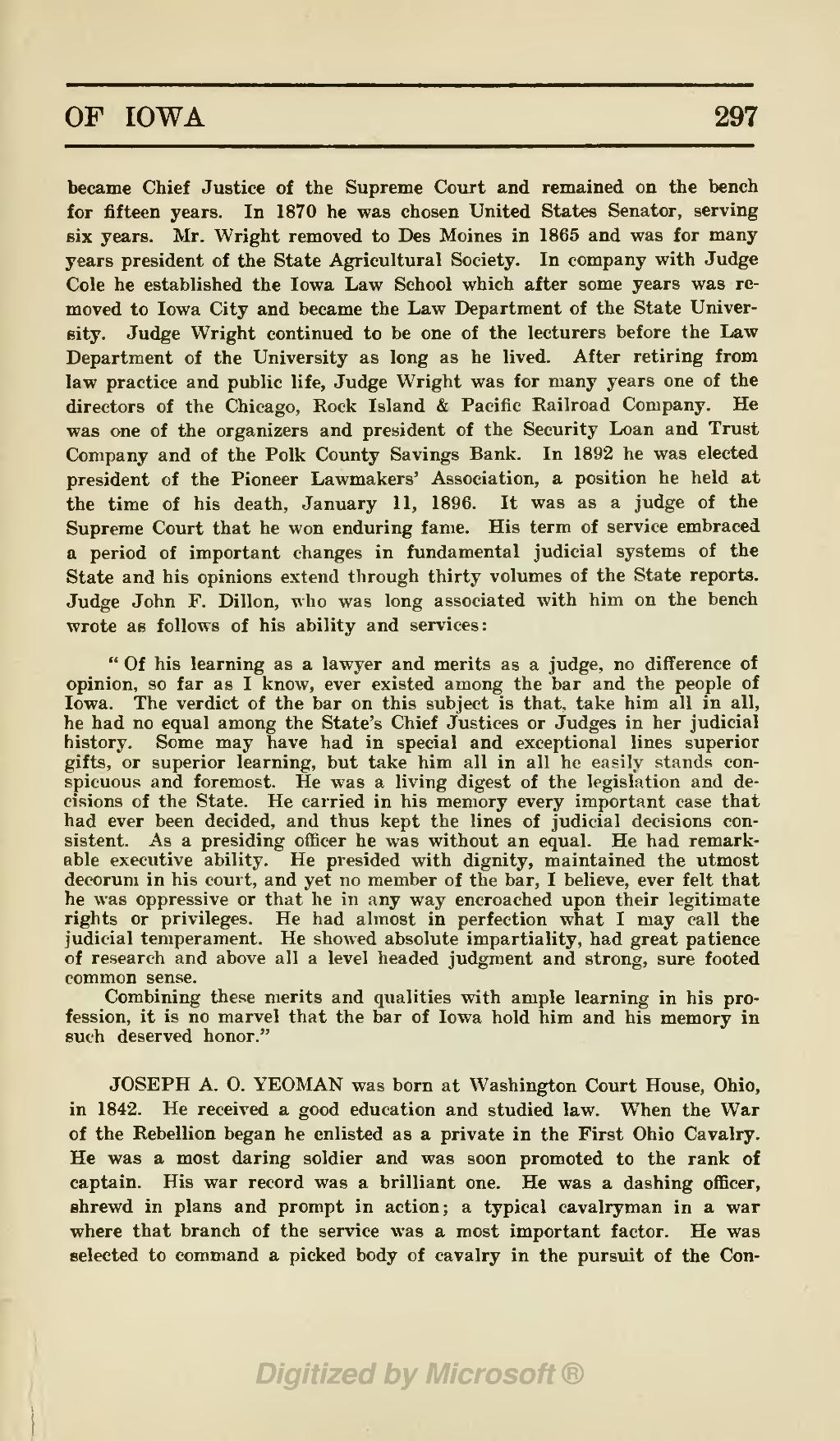became Chief Justice of the Supreme Court and remained on the bench for fifteen years. In 1870 he was chosen United States Senator, serving six years. Mr. Wright removed to Des Moines in 1865 and was for many years president of the State Agricultural Society. In company with Judge Cole he established the Iowa Law School which after some years was removed to Iowa City and became the Law Department of the State University. Judge Wright continued to be one of the lecturers before the Law Department of the University as long as he lived. After retiring from law practice and public life, Judge Wright was for many years one of the directors of the Chicago, Rock Island & Pacific Railroad Company. He was one of the organizers and president of the Security Loan and Trust Company and of the Polk County Savings Bank. In 1892 he was elected president of the Pioneer Lawmakers' Association, a position he held at the time of his death, January 11, 1896. It was as a judge of the Supreme Court that he won enduring fame. His term of service embraced a period of important changes in fundamental judicial systems of the State and his opinions extend through thirty volumes of the State reports. Judge John F. Dillon, who was long associated with him on the bench wrote as follows of his ability and services:
“Of his learning as a lawyer and merits as a judge, no difference of opinion, so far as I know, ever existed among the bar and the people of Iowa. The verdict of the bar on this subject is that, take him all in all, he had no equal among the State's Chief Justices or Judges in her judicial history. Some may have had in special and exceptional lines superior gifts, or superior learning, but take him all in all he easily stands conspicuous and foremost. He was a living digest of the legislation and decisions of the State. He carried in his memory every important case that had ever been decided, and thus kept the lines of judicial decisions consistent. As a presiding officer he was without an equal. He had remarkable executive ability. He presided with dignity, maintained the utmost decorum in his court, and yet no member of the bar, I believe, ever felt that he was oppressive or that he in any way encroached upon their legitimate rights or privileges. He had almost in perfection what I may call the judicial temperament. He showed absolute impartiality, had great patience of research and above all a level headed judgment and strong, sure footed common sense.
Combining these merits and qualities with ample learning in his profession, it is no marvel that the bar of Iowa hold him and his memory in such deserved honor.”
JOSEPH A. O. YEOMAN was born at Washington Court House, Ohio, in 1842. He received a good education and studied law. When the War of the Rebellion began he enlisted as a private in the First Ohio Cavalry. He was a most daring soldier and was soon promoted to the rank of captain. His war record was a brilliant one. He was a dashing officer, shrewd in plans and prompt in action; a typical cavalryman in a war where that branch of the service wag a most important factor. He was selected to command a picked body of cavalry in the pursuit of the Con-
